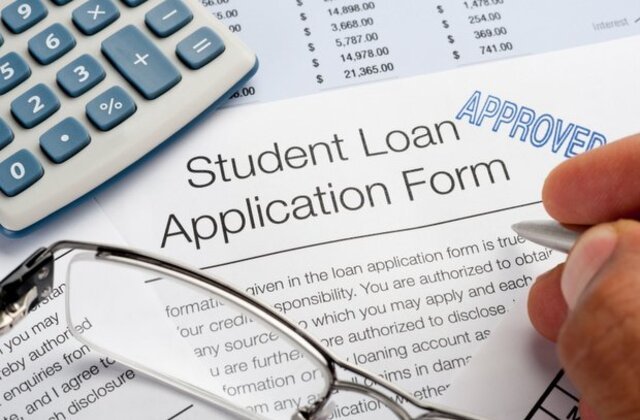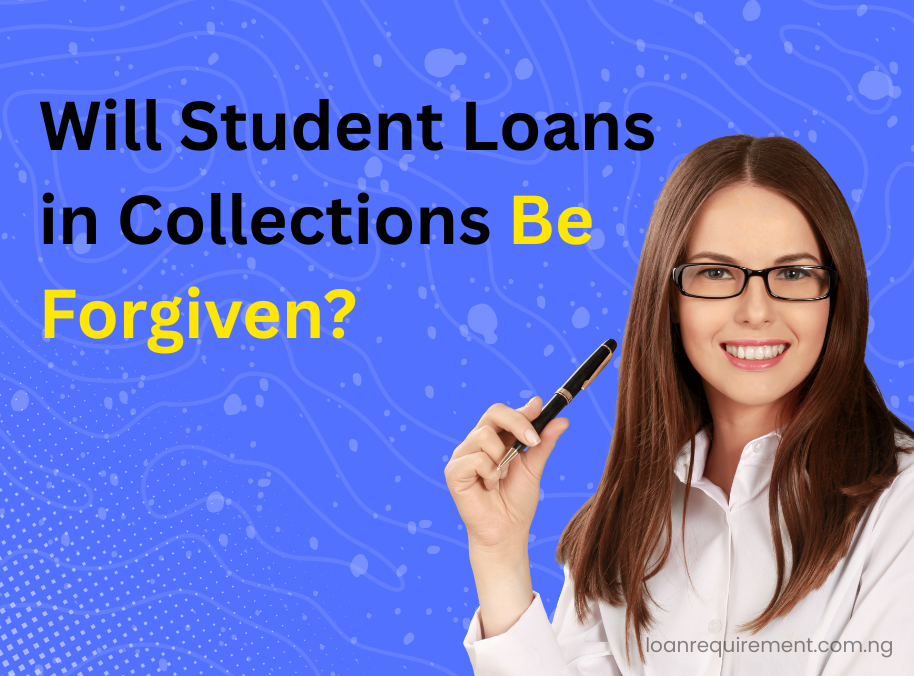Will student loans in collections be forgiven is a question many borrowers ask when they find themselves unable to keep up with payments. Falling behind on student loan payments can lead to your loan being sent to collections, and once that happens, the situation can feel overwhelming.
Calls from debt collectors, additional fees, damaged credit, and the constant worry about your finances make it difficult to see a way out. But understanding your options is the first step to regaining control. Loan forgiveness sounds like the ideal outcome when your loans have gone into collections.
It’s understandable to hope that the debt might simply go away, especially if your financial circumstances have worsened. But student loan forgiveness, especially for loans that have already defaulted, doesn’t happen automatically. The reality is more complex, and it depends on factors like the type of loan you have, the programs you’re eligible for, and how long your loan has been in collections.
Knowing your rights, understanding the government’s policies, and being aware of the available solutions can help you find a path forward. Whether your loan is federal or private, there are ways to resolve the debt, and in some cases, forgiveness is possible.
What Does It Mean When Student Loans Are in Collections?
When a student loan goes into collections, it means that the borrower has failed to make payments for an extended period, typically around 270 days (about nine months) for federal loans. Once this happens, the loan is considered to be in default.
After a default, the loan is transferred from the loan servicer to a collection agency, either a private company or a government-affiliated agency, to recover the money owed. This stage is serious. The government has powerful tools to collect the debt, including wage garnishment, seizing your tax refund, or taking a portion of your Social Security payments.
Private lenders may also sue you in court to recover the funds. On top of the original balance, you may be hit with collection fees, interest, and penalties, making the amount you owe grow much faster.
A student loan in collections not only creates financial stress but also damages your credit score significantly. This can make it harder to rent a home, get a car loan, or even apply for a job in some cases. Once a loan reaches this stage, ignoring it will only make things worse.
But even when a loan has been placed in collections, there are still options. The government offers programs to help borrowers get out of default, rebuild their credit, and in some situations, even qualify for forgiveness.
READ MORE
Student Loan Debt: Everything You Need to Know
All About Student Loan Forgiveness
Everything to Know About Student Loans Debt Collection
Impact and Future of Trump Student Loans

Is It Possible to Get Student Loan Forgiveness After Default?
Once a student loan is in collections, it doesn’t mean forgiveness is completely off the table, but it does make things more complicated. For federal loans, some forgiveness options are still available, even if the loan has defaulted. However, most of these programs require the borrower to take action first, such as getting out of default before qualifying.
For example, federal programs like Public Service Loan Forgiveness (PSLF), Income-Driven Repayment (IDR) forgiveness, or Teacher Loan Forgiveness typically require that your loan is in good standing. If your loan is currently in collections, you’ll likely need to either rehabilitate or consolidate it before becoming eligible for forgiveness.
These programs don’t offer a quick fix, but they do provide a legitimate path for people who are committed to resolving their debt. It’s also important to know that some recent policy changes, like the Fresh Start initiative, were introduced to help people in default access relief more easily.
These policies allow borrowers to return their loans to good standing and regain eligibility for various benefits, including forgiveness. However, programs like Fresh Start are time-limited and based on government policy decisions that can change.
If your loan is a private one, the road is much harder. Private lenders are not obligated to offer forgiveness programs, and most don’t. Once a private student loan goes into collections, you’ll typically need to work out a settlement or repayment arrangement directly with the lender or collection agency.
In rare cases, if the debt is very old or deemed uncollectible, it might be written off, but this is not the same as formal forgiveness and often still impacts your credit and financial record.
How Federal Student Loan Forgiveness Programs Work
Federal student loan forgiveness programs are designed to help borrowers reduce or eliminate their loan balance after meeting specific requirements. The most well-known program is Public Service Loan Forgiveness (PSLF). This is for borrowers who work full-time in public service jobs, such as for the government, schools, or non-profits, and make 120 qualifying monthly payments under a qualifying repayment plan.
After ten years of eligible service and payments, the remaining balance can be forgiven. There are also Income-Driven Repayment (IDR) forgiveness programs. These plans adjust your monthly payments based on your income and family size.
After 20 or 25 years of qualifying payments, depending on the plan, the remaining balance is forgiven. This is one of the more accessible forms of forgiveness for borrowers with low or moderate income, even if they don’t work in public service.
Another option is Teacher Loan Forgiveness, which allows teachers in low-income schools to have up to $17,500 of their federal loans forgiven after five years of teaching. There are also smaller programs for nurses, healthcare professionals, and those in certain types of military service.
For any of these forgiveness programs to apply, your loans usually need to be in good standing, not in collections or default. That’s why many people in collections first go through rehabilitation or consolidation to get their loans current before applying for forgiveness.
Can Private Student Loans in Collections Be Forgiven?
Private student loans are a completely different situation. Unfortunately, the short answer is no, private student loans in collections are not eligible for forgiveness through federal programs. These loans are not backed by the federal government, so they’re not subject to the same policies and protections.
Once a private student loan goes into collections, your options are more limited. Lenders may offer to settle the debt for a lump sum payment or lower the total you owe through negotiation, but this is not true forgiveness. Settling may reduce the balance, but it could still have tax consequences and affect your credit.
That said, if a private lender chooses to forgive or cancel part of your debt, it’s usually done as part of a negotiated settlement. In these cases, borrowers may need legal or financial advice to fully understand the terms. Some borrowers choose to file for bankruptcy as a last resort, although discharging student loans through bankruptcy is extremely rare and difficult, especially for private loans.
PEOPLE ALSO READ
What Is the Difference Between Secured and Unsecured Loans?
How Does Inflation Affect Loan Interest Rates?
Can You Use a Loan to Pay Off Other Debts?
How to Manage Loan Repayment During Financial Hardship
Conclusion
So, will student loans in collections be forgiven? The answer depends on the type of loan and your current situation. For federal student loans, there is still a chance to turn things around. Programs like loan rehabilitation, consolidation, and government initiatives can help bring defaulted loans back into good standing, opening the door to potential forgiveness.
If your loans are private, the path is far more limited. Private lenders aren’t required to offer forgiveness, and once the loan is in collections, the options narrow even further. In most cases, negotiating a settlement or working out a payment plan is the only way forward, and even then, the damage to your credit and finances may take time to repair.
